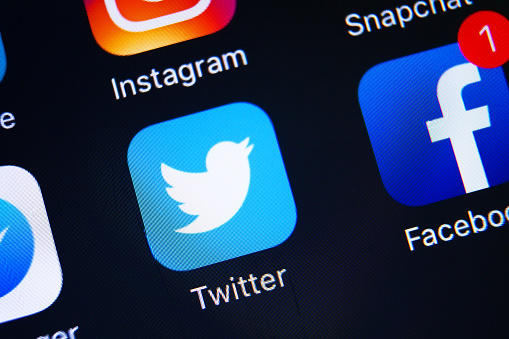Deleting fake news accounts can be a big game of whack-a-mole. It seems like no matter how many of these disruptive pages social platforms like Facebook and Twitter get rid of, more pop up. Now Twitter is turning to automation to help delete and manage accounts more efficiently.
Twitter announced that it has acquired Fabula AI, a London-based artificial intelligence company that specializes in “Geometric Deep Learning to identify fake news,” according to the company’s website.
“This strategic investment in graph deep learning research, technology and talent will be a key driver as we work to help people feel safe on Twitter and help them see relevant information,” Twitter said in a blog post.
The company said that Fabula’s initial focus will be to “improve the health” of conversations on Twitter and expand applications to stop spam and abuse.
“We are really excited to join the ML research team at Twitter, and work together to grow their team and capabilities,” Fabula co-founder Michael Bronstein said in a statement. “Specifically, we are looking forward to applying our graph deep learning techniques to improving the health of the conversation across the service.”
Misinformation and fake news are expected to ramp up as 2020 approaches. Facebook has also taken steps to ready itself against misinformation campaigns on its platform and its properties Instagram and WhatsApp.
In May, Facebook said it removed 3.4 billion fake accounts in six months. Those accounts ranged from political commentary to health and vaccine misinformation. Facebook acquired Bloomsbury AI in 2018 to help in its fight against fake news. The company also developed a “war room” ahead of U.S. midterm elections to curb the spread of misinformation.
International elections have also been under Facebook’s watchful eye. The company had to remove more than 200 fake news accounts across Facebook and Instagram from Indonesia that posted misinformation about elections in the country.
Despite all of Facebook’s efforts, fake news on the platform is still a large issue, and the company has not found an efficient or effective way to police it. Last month, the company announced plans to stop the spread of anti-vaxxer misinformation after YouTube and Pinterest created similar policies.
Although Facebook, Twitter, and other social platforms have taken steps to remove and monitor fake news, their efforts seem to fall flat as videos and content go viral within minutes on the internet. Twitter’s latest efforts may earn the company some brownie points, but it will ultimately be put to the test in the upcoming election.

